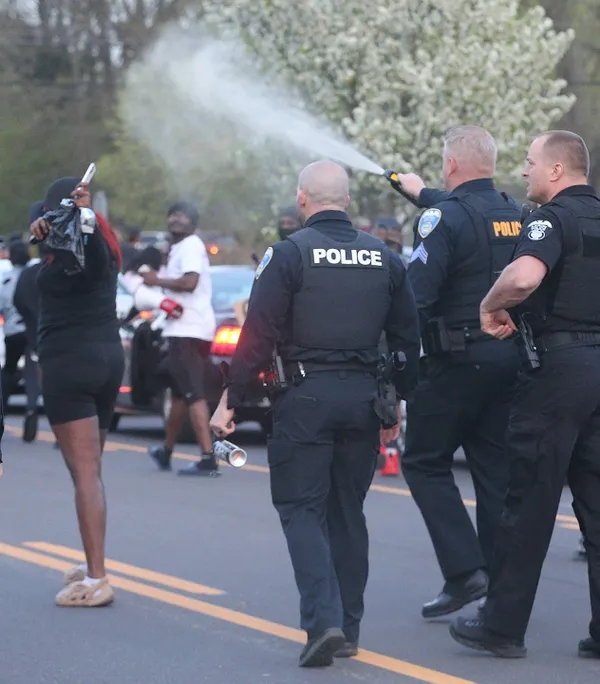Last month, pundits aplenty predicted that national politics in 2024 will be a wild bronco ride. With many of the current do-nothing Congress members in Washington up for reelection and a likely rematch of President Joe Biden and former President Donald Trump, that seems to be more statement of fact than prognostication.
Local and state politics will be similarly tumultuous.
As for local politics, the bad news first. Akron Public Schools, a major anchor for the city, which in turn is the economic and cultural driver of Summit County, has suffered poor leadership for far too long.
Last summer, Akron’s school board rushed to pick a new superintendent. This was after Superintendent Christine Fowler-Mack, hired by many of the same board members, was released from her contract 17 months early.
The board chose a candidate who has no experience running a district as large, diverse and poor as Akron’s.
I often feel like a bookie given the number of people who volunteer how long they think C. Michael Robinson will last. All bets are between 18 and 24 months.
There was an opportunity last November to elect school board members who could effectively mitigate the district’s many problems. Yet voters, as they often do everywhere, instead treated the election like a popularity contest. Two of the three open seats were filled by candidates with high name recognition but who in the debates revealed a critical lack of understanding of the district’s issues or any practical solutions.
The good news is that Akron has a new mayor. The city was long overdue for a new generation of leaders. In the May primary (Akron’s de facto mayoral election), voters hired 32-year-old Shammas Malik by nearly 18 points more than the second-place candidate.
Some citizens, especially those who have long known Malik, are wildly enthusiastic about his ascension to the city’s highest position. Others remain skeptical of his ability to root out cronyism and effect positive changes for every ward in Akron, especially those that need it the most.
Anyone who speaks with Malik quickly realizes his passionate commitment to Akron. He’s smart and a tireless worker who has shown acumen in the appointments he’s made to his administration. He deserves the chance to show the city what he will do.
Last fall, Ohio voters overwhelmingly approved both a constitutional amendment guaranteeing the right to an abortion and a law legalizing recreational marijuana. In response, Ohio Senate Republicans unsuccessfully attempted to modify the new marijuana law. They’ll likely try again, but with the law now in effect, making substantive, if any, changes is less likely.
Meanwhile, Ohio House Republicans discussed moving the jurisdiction of the abortion-rights amendment from the judiciary to — ta-da! — the Republican-controlled legislature. This is not the first time Ohio’s Republican state lawmakers have decided they need not comply with laws that they do not like.
Republican legislators have long enjoyed a supermajority in Ohio due to gerrymandering and in 2022 had no qualms ignoring two Ohio Supreme Court rulings that rejected Republican-drawn state redistricting maps as unconstitutional.
And like so many Republican-dominated states, Ohio’s legislature has taken aim at transgender youths and their families. A bill that would have banned trans females from playing sports on female high school and college teams, as well as severely restricted the medical care of trans youths under the age of 18, passed both the Ohio House and Senate.
But with a signature that angered many Republicans, Ohio Republican Governor Mike DeWine vetoed the bill. Ohio Democrats shouldn’t have been too surprised.
After stridently opposing the passage of the constitutional amendment protecting the right to an abortion in part by falsely claiming it would take away parents’ rights (it doesn’t), DeWine could not bring himself to sign into law a bill that openly and aggressively takes away the rights of parents to make medical decisions for their trans children.
These wedge issues will continue to dominant this important election year as Republicans try to draw attention away from the restrictions to reproductive rights they’ve imposed since the Supreme Court overturned Roe v. Wade in June 2022.
So, yes, hang on to your hats; 2024 politics, here we go!
This was first published in the Akron Beacon Journal on Sunday, January 14, 2024.
Postscript:
Ten days after this column was published, Ohio’s Republican legislature overturned Governor Mike DeWine’s veto of House Bill 68. Now, “access to gender-affirming health care for transgender minors and adults in Ohio is set to be heavily restricted under proposed administrative rules filed earlier this month by the state Health Department.” Once enacted (90 days after the overturn), many believe it will be a de facto ban on gender-affirming care for any Ohioan.
HB 68 also includes a ban on transgender females from participating in scholastic athletics. Currently there are only six such athletes in Ohio. Those six athletes had to meet rigorous qualifications to ensure they were not competing with an unfair physical advantage, which is why many referred to this ban as a solution in search of a problem.
Since DeWine’s veto of HB 68 was overturned, many Ohio families with transgender members have reported plans to leave the state. There also are concerns that people offered jobs in Ohio, including at the new Intel facility near Columbus, will no longer be willing to relocate to the state.

